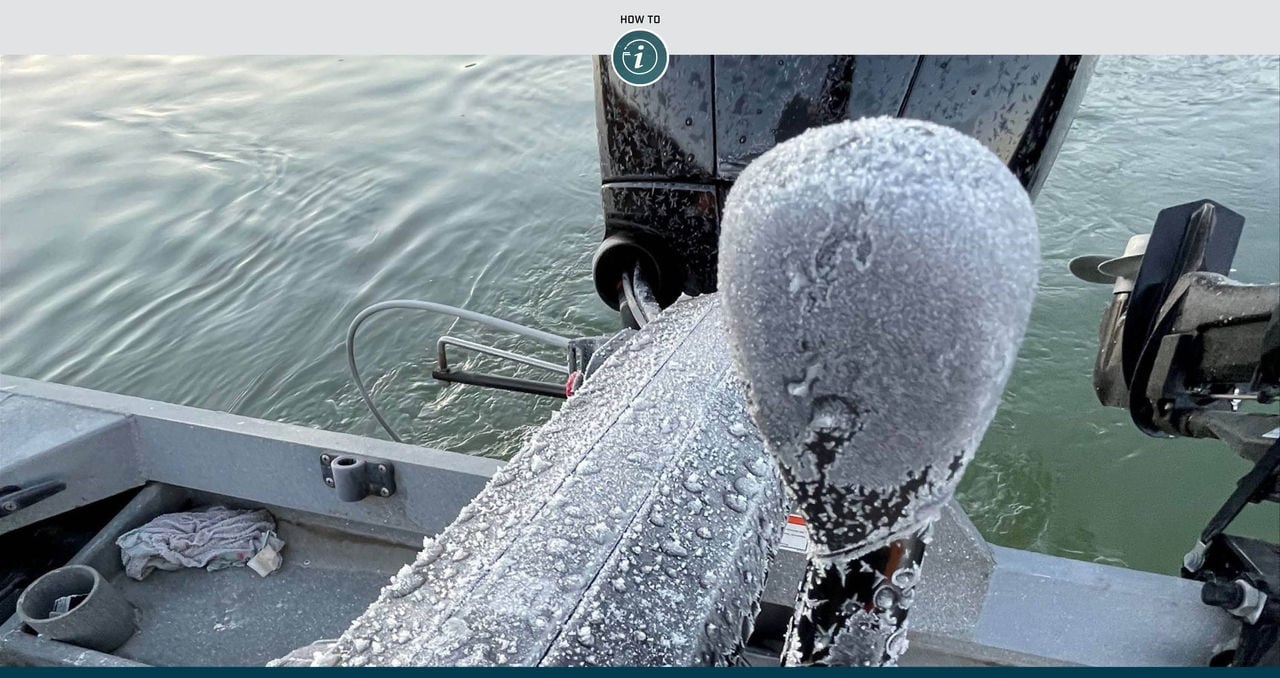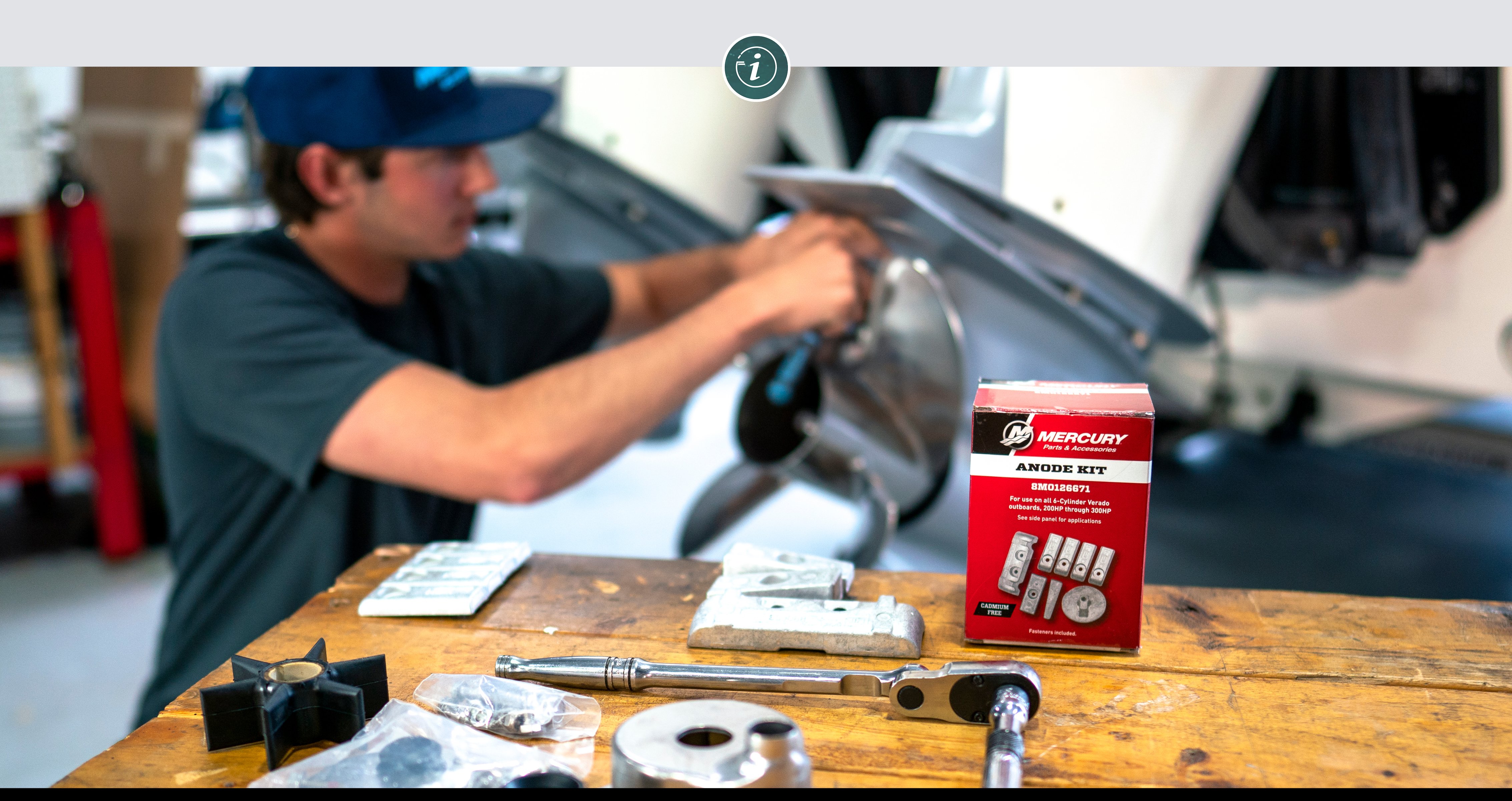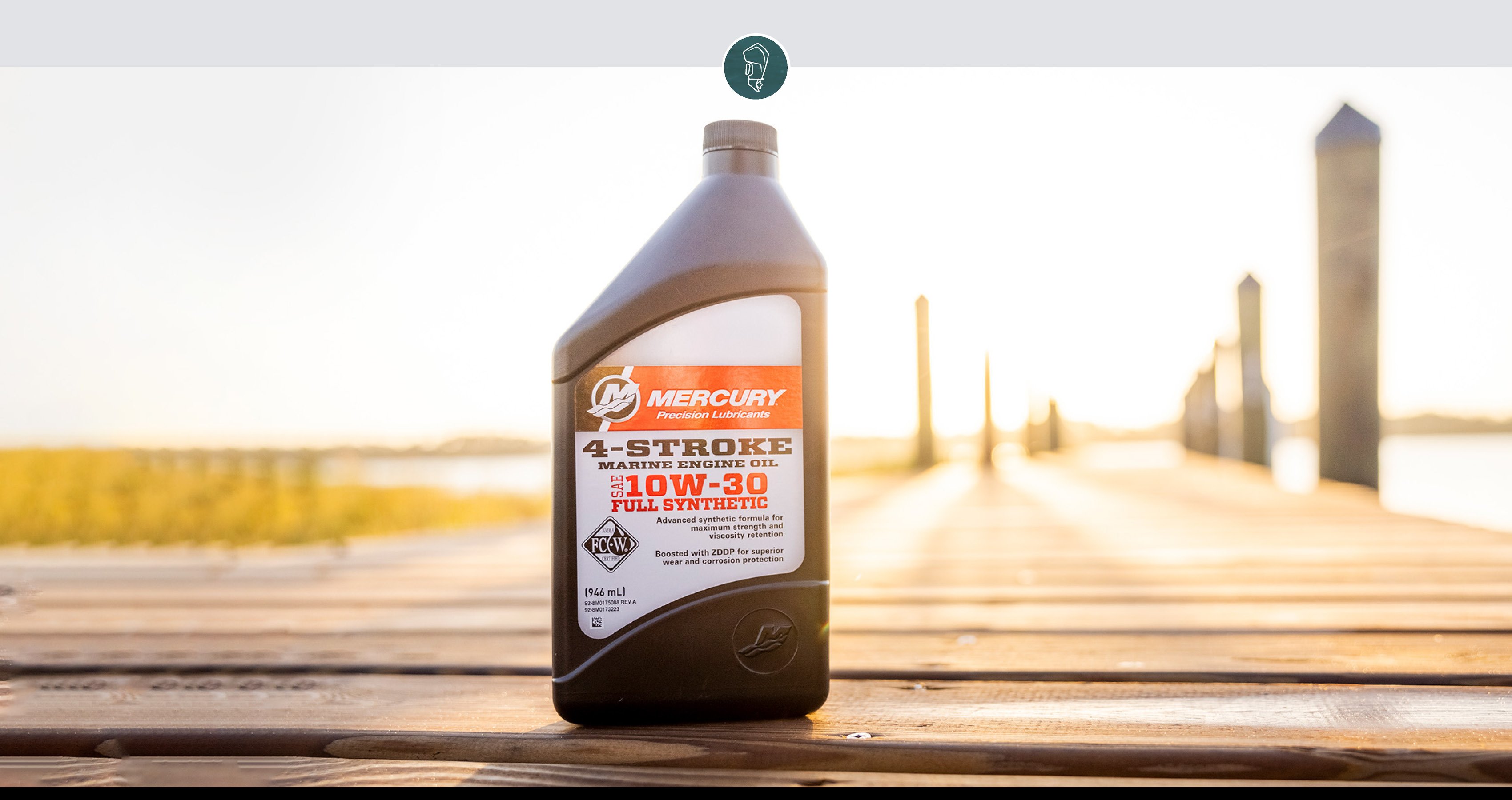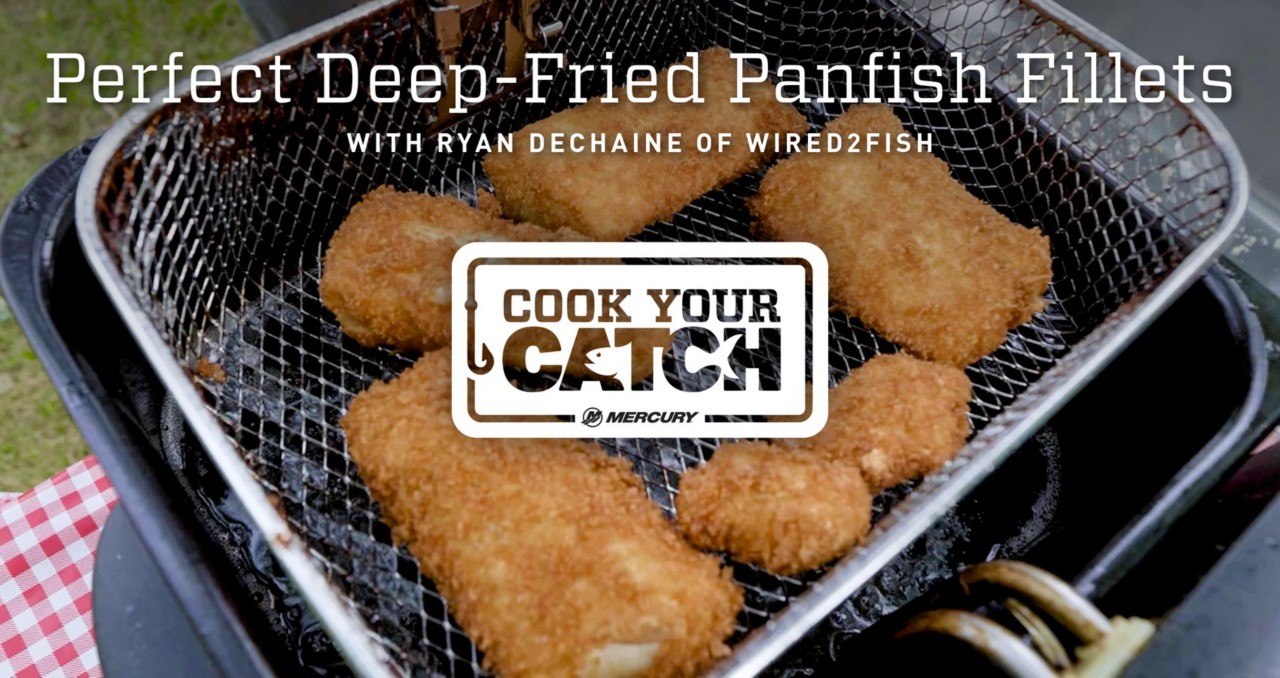Crispy, crunchy and golden on the outside. Soft and flaky on the inside. The perfect deep-fried fish has that oh-so-delicious combination of textures that allows it to hold up well enough for dipping, then fall apart in your mouth with every bite.
In this Mercury Cook Your Catch video, Ryan DeChaine of Wired2Fish shares his secrets for achieving this exact texture combination when frying fillets of panfish, walleye or other white fish. He starts with a double layer of breading then fries his fish in oil heated to a very high temperature – between 350 F and 360 F. When fried within that range, breaded fish cooks very quickly to a beautiful golden crisp. At lower temperatures, the fish would take longer to cook and could absorb excess oil, becoming soggy or greasy.
An electric fryer makes it easy to set and maintain the ideal temperature. If using other types of fryers, check your temperature with a thermometer designed for deep frying to make sure you’re in the right range.
DeChaine also likes an oil with a high smoke point. His preference is refined peanut oil, which has a smoke point of 450 F. Oils with low smoke points can start to smoke or burn if overheated during deep-frying. This can impart an acrid burnt flavor. Refined coconut oil, with its 400 F smoke point, is another of DeChaine’s favorites, and it’s a good option if someone you’re dining with has a peanut allergy.
As a general rule for deep-frying, your oil should have a smoke point at least 50 degrees higher than your cooking temperature. Just note that refined cooking oils typically have a higher smoke point than their unrefined versions. So be careful what you buy, and do some research to make sure you’re using the right oil for your cooking method.
With the right fryer heating the right oil to the right fry temperature, combined with DeChaine’s two-part breading, preparing a meal of perfectly fried fish is simple. Here’s the process:
Perfect Deep-Fried Panfish
Note: Adjust quantities based on the number of fillets being prepared. You can always add breading and eggs as needed.
- Deboned fish fillets, fresh or fully thawed
- 3 to 5 eggs
- 4 to 8 cups fine-grain dry breading mix
- 4 to 8 cups coarse panko or breadcrumb fish breading
- Peanut or coconut oil (consult your fryer owner’s manual for correct amount)
Add oil to the fryer and begin heating to 350 F to 360 F.
In a deep bowl, whisk the eggs. You could also use oil or milk, but DeChaine likes an egg wash because it makes the fillets stickier, for a better coating of breading.
Working in small batches or with individual fillets, coat each fillet in egg wash. Use the side of the bowl to wipe off excess egg.
Thoroughly coat each fillet in the fine-grain breading and shake off any extra.
Dip each fillet back in the egg wash. Gently wipe off excess egg.
Thoroughly coat each fillet in the coarse panko/breadcrumb breading.
Set aside finished fillets until all are breaded and the oil is hot. This resting time allows the egg and breading to harden so the coating is less likely to flake off in the oil.
When oil is at temperature, carefully add a few fillets to the fryer. Don’t overload. Cook for 2 to 2 1/2 minutes, or until fillets are golden brown and crispy.
Place cooked fillets on a pan pre-lined with paper towels to absorb excess oil. Cover with paper towels to keep warm.
Repeat in batches to fry any remaining fillets.
Keep the Fixins Simple
Serve your fish on sandwiches or as finger food, with a little tartar sauce or hot sauce on the side. Fried fish also goes great with french fries, macaroni and cheese, cole slaw, or even mixed fruit, depending on your preference. Just keep the sides simple, because the beauty of the electric fryer and this easy fish breading is that the meal comes together quickly, allowing you to feed an army of hungry anglers, friends or family members in little time.
Also, be sure to practice selective harvest and follow the local fishing regulations where you hooked your catch. Generally, that means you let the big fish go in the lake, and the smaller fish go in the grease, so the great tradition of fishing and fish fries can endure.




